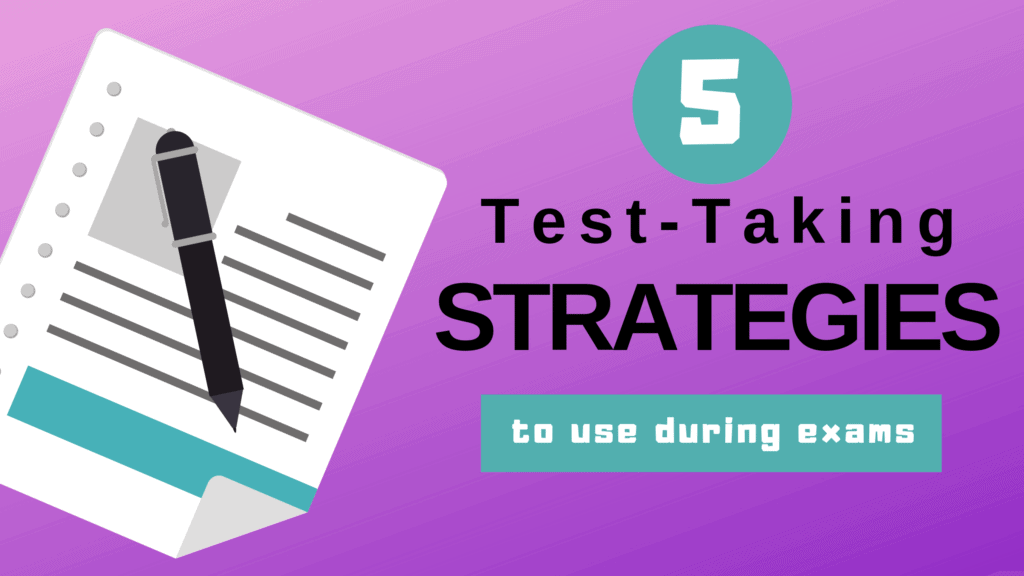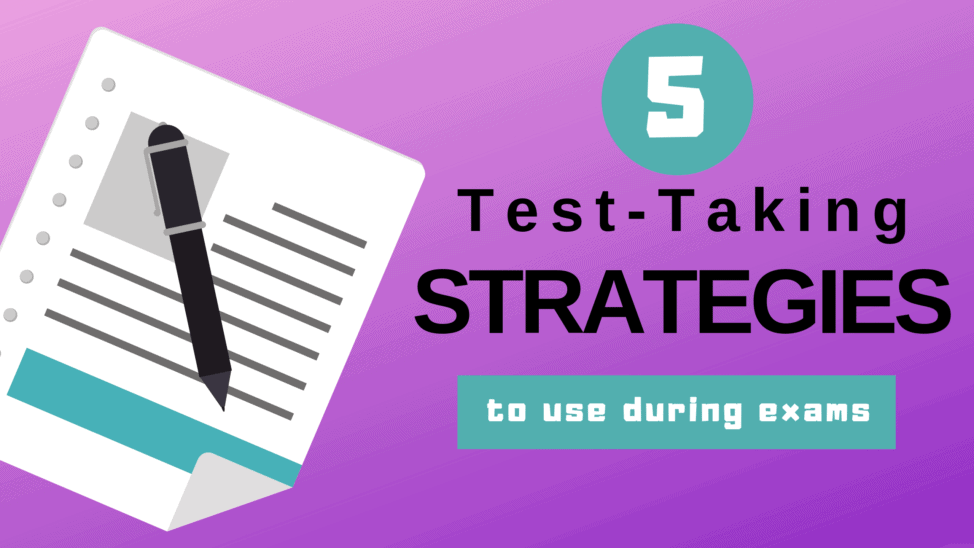
By Katie Azevedo, M.Ed.
I have personally tutored THOUSANDS of students one-on-one for standardized tests. I know that sounds insane. (It is.) I tell you this because it means I know a thing or two about test-taking strategies. And honestly, one of the most common questions I get from students and clients is about test-taking strategies. (The second most common question I get asked is How do I not forget what I study?)
While each test has its own set of test-taking strategies — for example, there are unique strategies for taking the SAT vs. the ACT vs. the GRE, vs. your history final, etc. — I’m going to give you 5 general techniques for taking tests, no matter the exam content.
Before I jump into the tips, I have to begin with the best pre-test strategy ever: Test yourself before the test. I always think this one is sooooo obvious, but I’m shocked over and over again by how few students actually do this. Do NOT let your actual exam be the first test you take: you MUST test yourself – in real-ish conditions – before the actual thing in order to know if you’re really ready. Here’s how to do that.
5 test-taking strategies for students
1. Do all the easy questions first.
Most tests, even the computer-based tests, allow you to do questions in whatever order you want. I suggest you do the easy questions first. You might not know which questions are “easy” until you try them out, so make that judgement call as you move through the test. Doing the “easy” questions first enables you to gain momentum, increase your confidence, and actually “review” the material before you move onto the harder questions. Additionally, if you are taking a timed test, this approach enables you to get to more questions.
2. Go for wrong answers.
On multiple-choice questions, there are always way more wrong answers than right answers. (Duh.) That means that your chance of finding a wrong answer is significantly higher than finding the one correct one. (Also duh.) With that said, seek out and eliminate what you know to be wrong, instead of going into the question looking for what’s correct. This test-taking strategy requires a mental shift, but it works. Also, you should always cross off the wrong answers directly on the test; do not mentally cross them off. X those babies out!
3. Immediately write down “cheat sheets” directly on the test.
No, I’m not saying to cheat. Obvs. What I’m saying is that right when you get the test, jot down any information that you have memorized that you will need for the exam. For example, on your math test, quickly write down the math formula that you memorized 2 minutes ago- the one that you’ll need to answer all the questions. On your history test, quickly write down the timeline of events that’s on the tip of your brain before you forget it. Maybe you came up with a weird acronym or mnemonic device to remember your Spanish vocabulary – write this down on the test immediately to be used as a potential reference or “cheat sheet.” Dump any information you’ve stored in your memory right onto the test (the margins, the backside, scrap paper, etc.) so that you don’t have to continue using energy to “store” it. Here’s a neat article that explains short-term memory limitations in simple language.
4. Find clues within the test.
Sometimes, test questions or other test content can provide answer clues to other questions. So if you come across a difficult question, skip it and save it until the end: if you’re watchful, you might end up finding a clue to the answer from a different part of the test.
5. Know when and when not to leave questions blank.
Some tests have wrong-answer penalties (usually the tests you take in school), while others (like the SAT/ACT) don’t deduct points for incorrect answers. Whether or not your test deducts points for wrong answers, you should usually answer the question, even if it’s a guess. On open response / essay questions, just write whatever you can about the topic, even if you’re unsure whether it’s right or wrong. Doing so increases your chances of earning at least some points.
The only time you should skip questions is if the test is timed and if you feel that you might not finish; in this case, put all your time into answering the questions you know you have a shot at getting right. If there’s time at the end, then go back and write or choose answers for the questions you had skipped.
While these test-taking strategies are meant to help you in the moment, the best strategy is, of course, to properly prepare.

